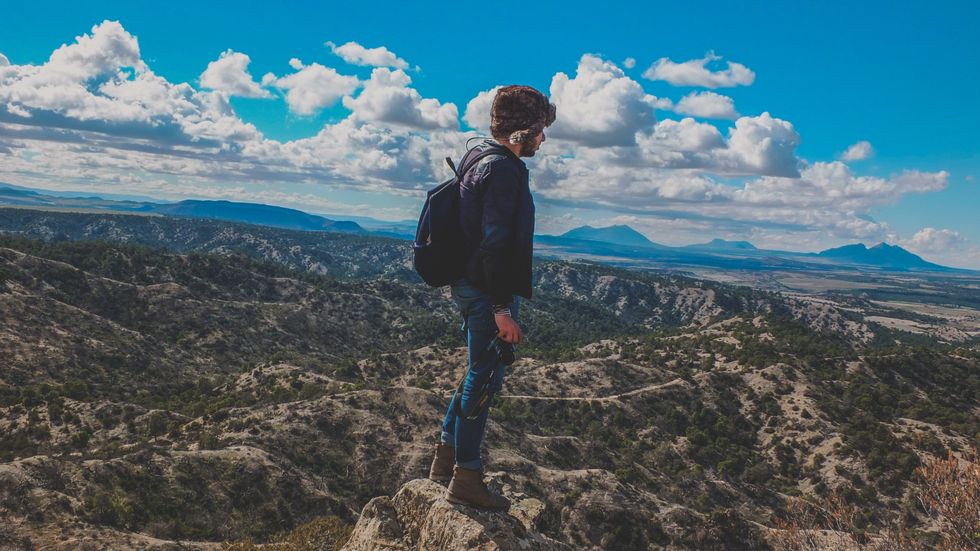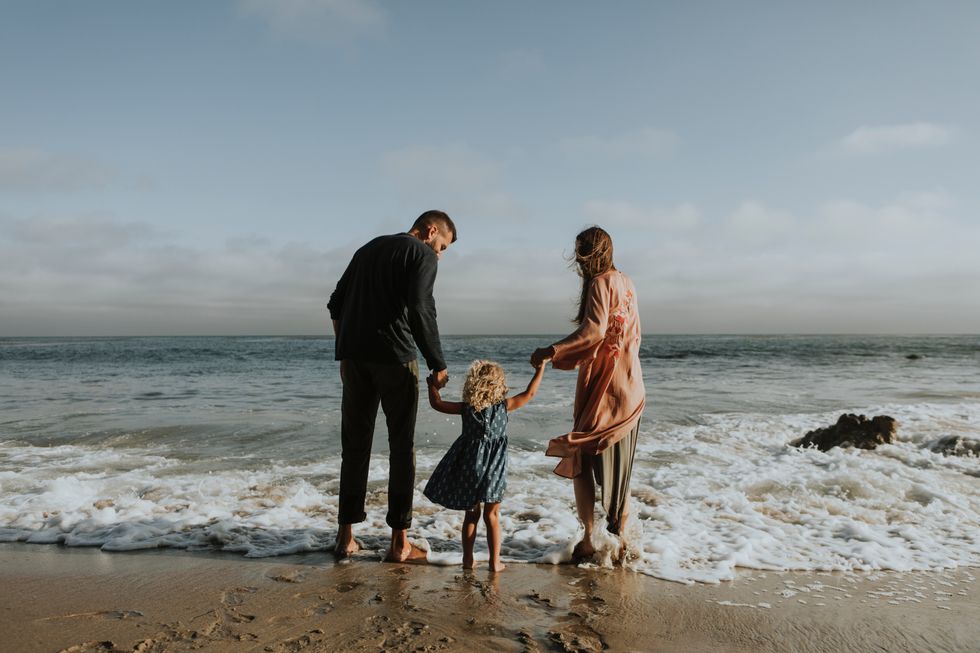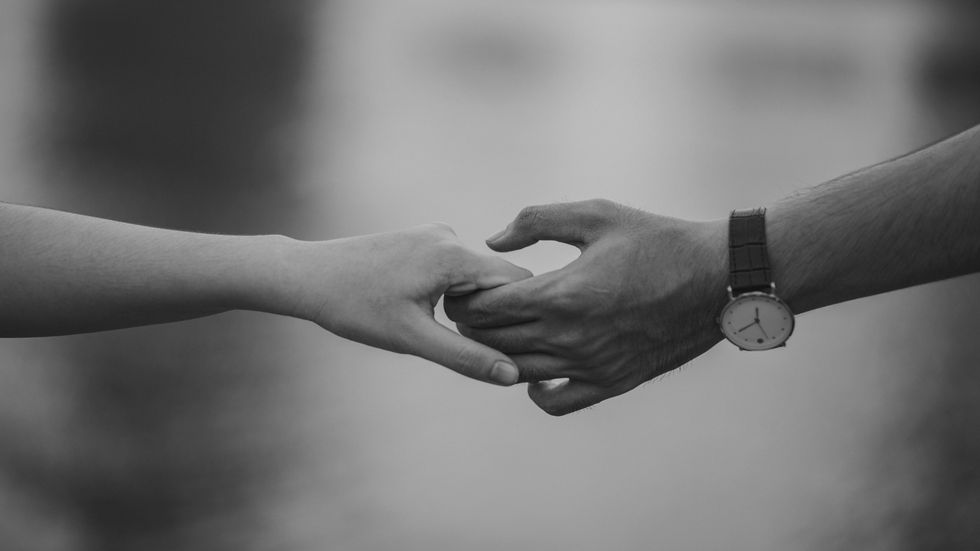Sophomores and juniors in their language arts classes across north Georgia learn about the literary movement transcendentalism with its reverence for nature, its emphasis on self-reliance and its disdain of blind obedience. And while some teachers are making students read classic transcendentalist pieces, such as "Walden" by Henry David Thoreau or "Self Reliance" by Ralph Waldo Emerson, others are choosing to add a book called "Into The Wild" to the mix.
Documenting the life and journey of a young man named Christopher McCandless, "Into The Wild" synthesizes multiple stories and accounts about this person into a fascinating piece that touches many other aspects of humanity besides what's found in transcendentalism.
As a restless, passionate and stubborn idealist, McCandless renounced his parents and his middle-class life for a nomadic lifestyle across the American wilderness in order to find spiritual fulfillment that culminated with his death in Alaska. His shortcomings, mistakes and triumphs along the way illuminate many subjects that teach readers what it means to be human and how to lead a life filled with purpose in contemporary society. Here in this article are four particularly interesting ones about risk, comfort, duty and relationships.
Modern living in contemporary society

To people with a certain mindset, the modern world with all of its comforts, luxuries and privileges seems empty, hollow and confining. Though the real reason McCandless abandoned his old life for this extreme lifestyle of on the brink starvation and adventure is unknown, one can hypothesize that it might've been because of the dull, monotonous routine of ordinary life.
Most people at some point have had a crisis where they recognize the sheer pointlessness and hopelessness of living a life that is basically predestined for them. Eventually, working, eating and sleeping becomes such a pervasive, never-ending cycle that all the effort spent on grades, jobs, raises and promotions seems purposeless. In escaping from this, McCandless hoped to regain control of his life and in the process, find a renewed sense of purpose by living every day filled with novelty.
Though we often criticize him for being too stubborn to recognize reality, maybe we are too eager to flee to the comfort of stability. McCandless's satisfaction and fulfillment with his life reveal that pushing ourselves to the limits through adventure can possibly bring greater joy and enrichment in a world where we live for our future instead of ourselves.
The appeal of danger and exploration

Sitting in a warm, cozy, well heated home away from the brute force of nature, it's easy to believe McCandless was an insane, misled masochist whose goal was to throw away his life and kill himself. At some point, one starts to wonder why he subjected himself to so much suffering, pain and terror. However, perhaps there was a reason for his obsession with being on the brink of death.
As more and more things are done for people and they become increasingly removed from nature, existence seems to become more filtered and dulled. Predictability and guaranteed safety often water down experiences making accomplishment handed over on a silver spoon instead of actually being earned by merit. So despite having everything around him, McCandless never had raw, unfettered experience with nature where he controlled his own destiny and identity.
In seeking this experience, McCandless teaches us that it's okay to flirt with uncertainty and danger because they add excitement to our lives along with the awareness of our own mortality. Though this awareness definitely puts us in our place, it also adds to the thrill. After all, there's nothing that makes you feel more alive than knowing you could die at any minute.
The dehumanization of parents

A major part of what prompted McCandless to resort to such extreme adventure was his inability to see his parents as human. Ironically, he often treated those closest to him the harshest because he saw them enough to develop a certain set of expectations or a moral code as to how they should act. This is how he was able to overlook the hypocrisy of some of his biggest heroes while constantly criticizing his parents.
When Chris McCandless found out that his father had a life before him, had made mistakes and was not perfect, he was unable to forgive him. Instead, he became more angry, radical and isolated because he never saw his dad as human but as a "dad." This assumption and strict moral code caused him to take for granted what a parent should be, offer little room for forgiveness and harbor dangerous resentment.
Thus, McCandless can teach us to not get angry at our loved ones just because they are different from what we assumed they were but to better understand them as a human being instead.
Responsibility and obligation in relationships

When Chris McCandless was alive on his journey, he was not some antisocial hermit or psychopathic misanthrope. He was a charming, young man who left a deep impact on all he encountered. Why then, did he leave them all behind after a few weeks hurting and devastating them along with his family?
As Chris McCandless tried to free himself from the "corrupting" influences of others and discover who he was on his own, he avoided responsibility and ties that would trap him in the same unhappy lifestyle he came to escape from. Though he enjoyed company, he never stayed long enough to form a bond or relationship because that came with duty, obligation, commitment and reciprocation. When he acted so friendly to those he met that didn't share this mentality, he ended up hurting many who were mislead into thinking he was going to stay with them.
Though many label him as selfish for causing so many of his friends pain, his behavior is one that raises important questions about freedom and duty along with the relationship between self-interest and sacrifice for others.
Should we stay in relationships with others if it costs us our happiness and freedom? Is responsibility and mutual care something we need to survive? Is it justified to hurt others to pursue our own interests? If not, how do we make ourselves happy while keeping others happy as well? McCandless brings these questions up as he interacts with people along his odyssey.














